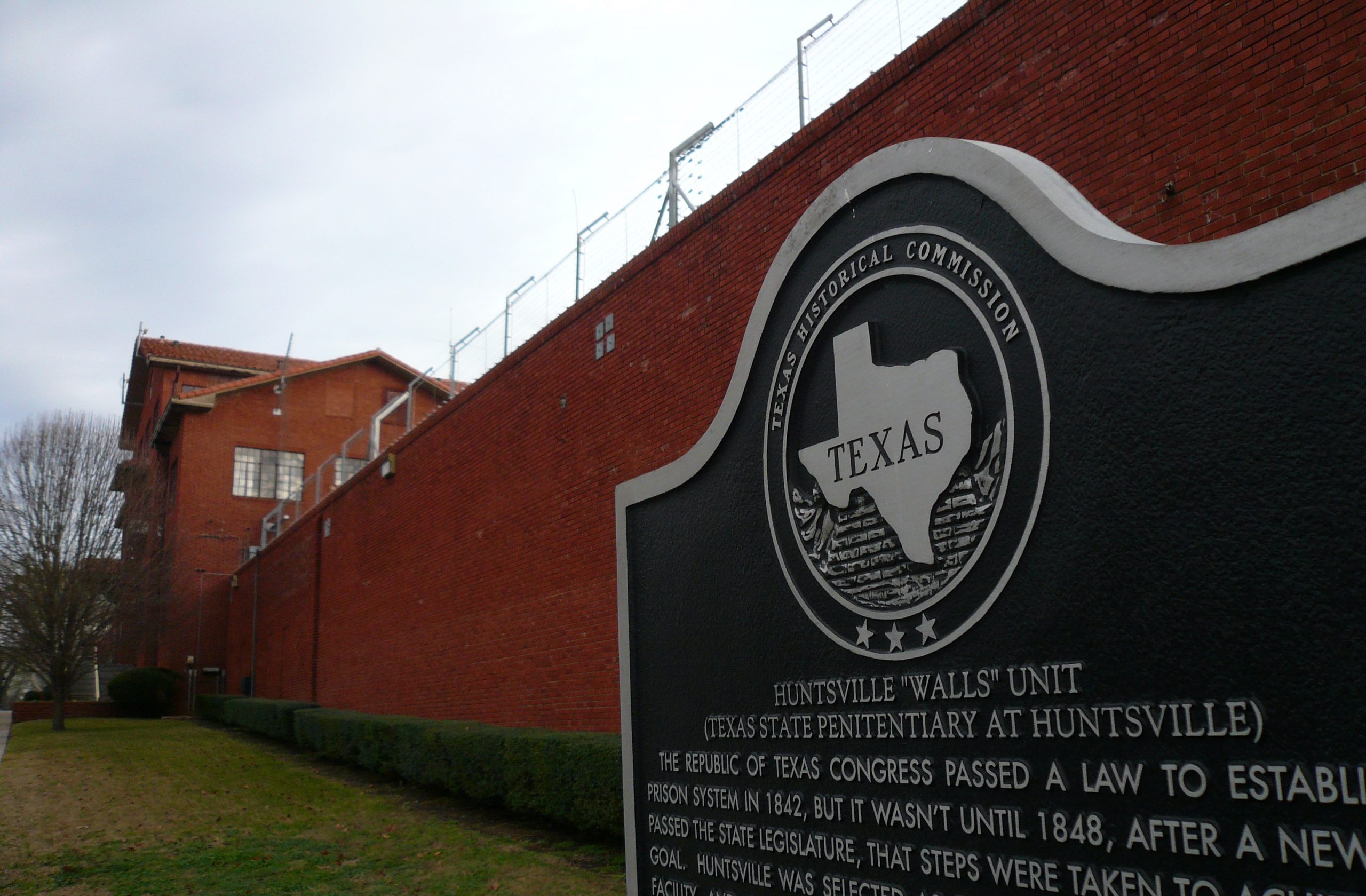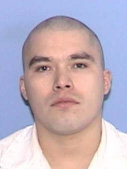CASE PREVIEW
on Nov 8, 2021 at 12:59 pm

The Texas State Penitentiary at Huntsville, where the state's execution chamber is housed. (mlsnp via Flickr)
On Oct. 21, when Willie Smith III was executed in Alabama for the 1991 murder of Sharma Ruth Johnson, his pastor was at his side. Witnesses reported that the pastor, Robert Wiley, put his hand on Smith’s leg and appeared to pray with him. On Tuesday, the Supreme Court will hear oral argument in a Texas inmate’s bid to obtain the same kind of aid from his pastor that Alabama allowed Wiley to provide to Smith.
The justices have grappled with the question of spiritual advisers at executions for two and a half years. But Tuesday’s case, Ramirez v. Collier, will be the first time that they will rule definitively on the rights of inmates to receive religious comfort and guidance in their final moments.
Prior cases involving spiritual advisers
The four cases that have previously come to the court centered on whether spiritual advisers could be present in the execution chamber at all. In February 2019, the court permitted Alabama to execute a Muslim man, Domineque Ray, after the state refused to allow Ray to have an imam at his side in the execution chamber, even though the state at that time allowed a Christian chaplain in the chamber. In its brief order, the court noted that Ray had sought relief only 10 days before his scheduled execution.
One month later, the court prohibited Texas from executing a Buddhist prisoner, Patrick Murphy, unless he was allowed to have a Buddhist priest at his side. In an opinion agreeing with the decision to block Murphy’s execution, Justice Brett Kavanaugh emphasized that, under the state’s policy in effect at the time, Muslim and Christian inmates were allowed to have spiritual advisers in the execution chamber with them, but inmates of other faiths – like Murphy – were not. Although Texas may have good reasons to limit access to the execution chamber, Kavanaugh acknowledged, the solution would be to exclude all spiritual advisers from the chamber, rather than distinguishing among inmates based on their religion.
After the court’s order in Murphy’s case, Texas initially adopted a new policy that excluded all spiritual advisers from the execution chamber. That led a Catholic inmate, Ruben Gutierrez, to go to federal court to challenge the new policy. In June 2020, the Supreme Court put Gutierrez’s execution on hold and directed the district court to determine whether allowing spiritual advisers in the execution chamber would jeopardize security. In January 2021, after the district court concluded that it would not, the Supreme Court sent Gutierrez’s case back to the lower courts for them to take another look at the case in light of those findings. Texas later revised its policy again to allow spiritual advisers in the execution chamber.
One month later, a divided court barred Alabama from executing Willie Smith III unless it allowed him to have his pastor at his side. Four justices — Justices Stephen Breyer, Sonia Sotomayor, Elena Kagan and Amy Coney Barrett — all signed an opinion, written by Kagan, that said the state failed to adequately justify its policy of barring spiritual advisers from the execution chamber. Three justices — Chief Justice John Roberts and Justices Clarence Thomas and Brett Kavanaugh — indicated that they would have allowed the execution to go forward under Alabama’s policy. But Roberts and Kavanaugh suggested that, in order to avoid lengthy litigation, states should “figure out a way to allow spiritual advisors into the execution room, as other States and the Federal Government have done.” The remaining two justices – Justices Samuel Alito and Neil Gorsuch – did not publicly disclose how they voted, but at least one of them must have voted with the three liberal justices and Barrett to prevent Smith’s execution from occurring without a spiritual adviser.
Eight months later, Alabama executed Smith by lethal injection with his pastor at his side, praying with him and placing his hand on his leg.
The current case
Enter John Ramirez, who was sentenced to death for the 2004 murder of convenience-store clerk Pablo Castro. Ramirez came to the Supreme Court in early September, asking the justices to put his execution on hold to fully consider his request that his pastor be allowed to physically touch him and audibly pray in the execution chamber while Ramirez is put to death. The lower courts had rejected his request to postpone his execution, but on Sept. 8 the justices granted it and fast-tracked his appeal.

John Ramirez
Stressing that he is seeking only a “narrow, but vitally important, remedy essential to his religious faith,” Ramirez contends that the state’s refusal to allow his pastor, Dana Moore, to touch him and pray out loud violates both the Constitution and the federal law guaranteeing religious rights for inmates. Texas can only prevail, he argues, if it can show more than “[g]eneralized concerns about security.” Instead, he says, the state must show both that it has a compelling interest related to the specific accommodations that he is seeking – the desire to have Moore pray out loud and physically touch him – and that it can’t advance that interest in a less restrictive way. But here, Ramirez asserts, the state “has not come close.” Indeed, he notes, for many years Texas allowed advisers to be present in the execution chamber and to pray out loud and touch the inmate; other jurisdictions, such as Alabama and the federal government, have recently done the same, without compromising security.
Ramirez dismisses the state’s argument that he failed to pursue all possible avenues in the grievance process for his request to have Moore pray audibly. He has “consistently” made that request, he maintains, and the state’s “‘gotcha’ approach” disregards the common understanding of Christian prayer, which is normally spoken out loud.
The federal government agrees with Ramirez that he “may well have” pursued all of the available paths for his audible-prayer claim, especially when Ramirez “could reasonably have assumed that Pastor Moore’s presence would necessarily entail at least some speech.” The government also agrees that Texas “has compelling interests in the security and solemnity of the execution, and the privacy of the person involved.” However, the government continues, Texas has not yet shown that a flat ban on the accommodations that Ramirez is seeking is the only way to protect that interest.
The state pushes back, portraying Ramirez’s claims as, in essence, an effort to stave off execution. The state complains that Ramirez filed his complaint only 17 days before his scheduled execution, and it argues that he did not fully comply with the prison’s grievance rules for either claim. In particular, the state asserts, Ramirez’s request to have his pastor “pray over” him did not make a clear request to have Moore pray out loud.
But even if Ramirez can overcome these procedural obstacles, the state continues, he still cannot prevail. Ramirez has not shown, the state suggests, that he believes that his faith requires the accommodations that he is seeking; Moore has indicated only that Moore believes that these accommodations are necessary. And prohibiting audible prayer and physical touch by an inmate’s spiritual adviser is the least restrictive means, the state avers, to advance its interests – which, the state explains, include not only security but also “preventing pain and suffering for Ramirez, and protecting his victim’s family from further emotional trauma.”
This article was originally published at Howe on the Court.
"right" - Google News
November 09, 2021 at 12:59AM
https://ift.tt/3EQSsHE
Court to clarify the right of death-row inmates to receive spiritual guidance during execution - SCOTUSblog
"right" - Google News
https://ift.tt/32Okh02
Bagikan Berita Ini














0 Response to "Court to clarify the right of death-row inmates to receive spiritual guidance during execution - SCOTUSblog"
Post a Comment